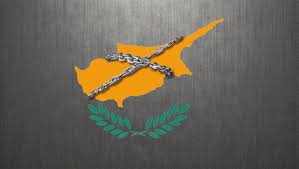 Getting creditors not taxpayers to rescue banks seemed like a good idea, but it has not worked well in Cyprus.
Getting creditors not taxpayers to rescue banks seemed like a good idea, but it has not worked well in Cyprus.
NOTHING has infuriated taxpayers more in recent years than the
bailing-out
of banks. The cost has been colossal: €592 billion ($800 billion) of European
taxpayers’ money went into teetering banks between 2008 and 2012. Moves to make
such bail-outs a last rather than a first resort have therefore been welcomed.
From 2016 losses from bank collapses in Europe will be met as far as possible
by the banks’ creditors.
Cyprus has already provided a year-long test of this “bail-in” approach.
The results are discouraging (see article). The economy is on course to shrink by 5% this year after a similar
decline in 2013, and unemployment has climbed to 17%. Cyprus’s experience
should serve as a warning against too violent a swing away from bail-outs, in
Europe and beyond, and as a reminder of why banks have previously been rescued.
Distributing
the pain
Amid tough competition, Cyprus’s banking crisis was a contender for
Europe’s worst. The botched rescue a year ago was surely the nadir of an
unimpressive record of decision-making by European finance ministers and the
IMF. At first, a raid on insured deposits was envisaged, though ultimately they
were spared and the main victims were uninsured depositors—a decision made
easier by the fact that many of them were Russians. But getting creditors both
to absorb losses and to recapitalise the country’s biggest bank (which also had
to absorb the second-biggest and even more comprehensively bust bank) is not
proving to be a great success.
The resulting bank, which is dominant in Cyprus, is a blighted behemoth.
Though its capital ratio looks respectable, payments are late on half of its
lending book. With the Cypriot economy shrinking and the property market still
overvalued, more loans will turn sour. And the bank’s loans are half as big
again as its deposits. That leaves it dependent on emergency central-bank
funding and unfit to provide the flow of credit that the economy needs if it is
to recover.
Three lessons can be learnt from the Cypriot saga. The first is the
importance of having a state-backed “bad bank” into which the bad loans of a
restructured bank can be placed. These asset-management companies lift the
weight of bad loans off the books of banks, at a big discount to their value
when they were extended, freeing banks to provide credit for new ventures.
Because these asset managers can operate on a longer horizon than banks, they
can avoid distress sales. NAMA, the Irish version, concentrated at first on
selling off assets in Britain, where property recovered faster than in Ireland.
Second, getting uninsured deposits to take much of the pain may help
protect taxpayers, but in Cyprus it has destroyed public faith in banks. Big
depositors everywhere will be more nervous as a result, with money taking
flight at the first whiff of danger. It was precisely worries about bank runs
that have made states reluctant for so long to hang banks out to dry. If
bailing-in is to work, it should target longer-term debt that cannot be
withdrawn and investors who can factor in the risk of a bust. This makes it
vital that regulators promote innovations like contingent convertible bonds (or
“cocos”), forms of debt that explicitly envisage bail-in.
The third lesson is that attempts to set rigid templates are likely to rub
up against the crooked timber of banking. Politicians in America as well as
Europe are imposing binding rules to limit public liability and to discourage
risky behaviour on the part of banks. But banking crises vary: some threaten a
systemic collapse whereas others are containable. There must be flexibility to
deal with the worst-case contingencies. Cyprus’s difficulty in overcoming
recession while its main bank is in such a mess should serve as a warning
against strict solutions that smack of puritanism rather than pragmatism.
«Economist»:
Απέτυχε το bail–in στην Κύπρο
Λευκωσία: Το κυπριακό πρόγραμμα πηγαίνει καλά
αλλά η διάσωση των τραπεζών με ίδια μέσα (bail-in) απέτυχε, αναφέρει σε
δημοσίευμά του το περιοδικό «Economist», καταγράφοντας τις εξελίξεις στη χώρα
μετά τα δραματικά γεγονότα Μαρτίου.
Στην έντυπη έκδοση του περιοδικού με τίτλο «Τραυματισμένο νησί» και υπότιτλο «Η διάσωση αποδίδει, το bail-in όχι», αναφέρεται ότι η εμπειρία της Κύπρου έχει μεγάλες επιπτώσεις για το πώς θα αντιμετωπίζονται μελλοντικά τραπεζικές κρίσεις στην Ευρώπη.
Το περιοδικό αναφέρει ότι το τραύμα της περασμένης άνοιξης, όταν οι τράπεζες είχαν κλείσει για περίπου δύο εβδομάδες και επιβλήθηκαν οι έλεγχοι κεφαλαίου, αναμενόταν να έχει καταστροφικές συνέπειες για την Κύπρο.
Η οικονομία συρρικνώθηκε κατά 5,4% το 2013 μετά από μια πτώση 2,4% το 2012. Αν και επώδυνη, ήταν ωστόσο ηπιότερη από την πτώση 8,7% που προβλεπόταν τον Απρίλιο από την Τρόικα. Η κυπριακή οικονομία έχει αποδειχθεί να είναι πιο ανθεκτική από ό,τι αναμενόταν, σχολιάζει το δημοσίευμα.
Σημειώνεται ότι η χώρα είχε τελικά και άλλα δυνατά σημεία, πλην της στήριξης στις τράπεζες, όπως ο τουρισμός και υπηρεσίες προς επιχειρήσεις.
Ο «Economist» θεωρεί ότι το μεγαλύτερο σύννεφο πάνω από την κυπριακή οικονομία είναι η κατάσταση της Τράπεζας Κύπρου. Διατυπώνονται πάντως θετικά σχόλια για το «νέο και δυναμικό αφεντικό» της τράπεζας, τον Τζον Χούρικαν και τις ενέργειές του για περαιτέρω μείωση της εξωτερικής έκθεσης της τράπεζας.
Γίνεται αναφορά στη μείωση του αριθμού υποκαταστημάτων και μελών προσωπικού, καθώς και σε «αλλαγή νοοτροπίας» όλου του τραπεζικού συστήματος από τον κ. Χούρικαν, με τη γρήγορη επέμβαση σε περιπτώσεις που πελάτες δεν μπορούν να εξυπηρετήσουν τα χρέη τους. Παρόλ’ αυτά, ο Economist χαρακτηρίζει το έργο που απομένει για την ανάκαμψη της Τράπεζας Κύπρου ως «τεράστιο», για δύο λόγους.
Στην έντυπη έκδοση του περιοδικού με τίτλο «Τραυματισμένο νησί» και υπότιτλο «Η διάσωση αποδίδει, το bail-in όχι», αναφέρεται ότι η εμπειρία της Κύπρου έχει μεγάλες επιπτώσεις για το πώς θα αντιμετωπίζονται μελλοντικά τραπεζικές κρίσεις στην Ευρώπη.
Το περιοδικό αναφέρει ότι το τραύμα της περασμένης άνοιξης, όταν οι τράπεζες είχαν κλείσει για περίπου δύο εβδομάδες και επιβλήθηκαν οι έλεγχοι κεφαλαίου, αναμενόταν να έχει καταστροφικές συνέπειες για την Κύπρο.
Η οικονομία συρρικνώθηκε κατά 5,4% το 2013 μετά από μια πτώση 2,4% το 2012. Αν και επώδυνη, ήταν ωστόσο ηπιότερη από την πτώση 8,7% που προβλεπόταν τον Απρίλιο από την Τρόικα. Η κυπριακή οικονομία έχει αποδειχθεί να είναι πιο ανθεκτική από ό,τι αναμενόταν, σχολιάζει το δημοσίευμα.
Σημειώνεται ότι η χώρα είχε τελικά και άλλα δυνατά σημεία, πλην της στήριξης στις τράπεζες, όπως ο τουρισμός και υπηρεσίες προς επιχειρήσεις.
Ο «Economist» θεωρεί ότι το μεγαλύτερο σύννεφο πάνω από την κυπριακή οικονομία είναι η κατάσταση της Τράπεζας Κύπρου. Διατυπώνονται πάντως θετικά σχόλια για το «νέο και δυναμικό αφεντικό» της τράπεζας, τον Τζον Χούρικαν και τις ενέργειές του για περαιτέρω μείωση της εξωτερικής έκθεσης της τράπεζας.
Γίνεται αναφορά στη μείωση του αριθμού υποκαταστημάτων και μελών προσωπικού, καθώς και σε «αλλαγή νοοτροπίας» όλου του τραπεζικού συστήματος από τον κ. Χούρικαν, με τη γρήγορη επέμβαση σε περιπτώσεις που πελάτες δεν μπορούν να εξυπηρετήσουν τα χρέη τους. Παρόλ’ αυτά, ο Economist χαρακτηρίζει το έργο που απομένει για την ανάκαμψη της Τράπεζας Κύπρου ως «τεράστιο», για δύο λόγους.
Πρώτον, με την απορρόφηση των δανείων της Λαϊκής η τράπεζα διπλασίασε την έκθεσή της στην κυπριακή οικονομία και ιδίως στην αγορά ακινήτων.
Αναφέρεται χαρακτηριστικά ότι στο τέλος του 2013 το 53% των δανείων της Τράπεζας Κύπρου ήταν μη εξυπηρετούμενα, με το περιοδικό να εκτιμά ότι το ποσοστό αυτό θα αυξηθεί. Δεύτερον, τα γεγονότα της άνοιξης του 2013 έχουν διαβρώσει την εμπιστοσύνη στις τράπεζες και ιδίως στην Τράπεζα Κύπρου, τα δάνεια της οποίας είναι 45% περισσότερα από τις καταθέσεις.
Ο «Economist» καταλήγει με σχόλιο του νομπελίστα Χριστόφορου Πισσαρίδη ότι όσο ο κύριος δανειστής της χώρας παραμένει χτυπημένος, είναι δύσκολο να δει κανείς πώς η Κύπρος μπορεί να πραγματοποιήσει μία βιώσιμη ανάκαμψη. Το τελικό σχόλιο του περιοδικού είναι ότι «αν και η οικονομία έχει υποστεί μικρότερο από το αναμενόμενο πλήγμα, παραμένει στην εντατική».
Πηγή: «Φιλελεύθερος»





